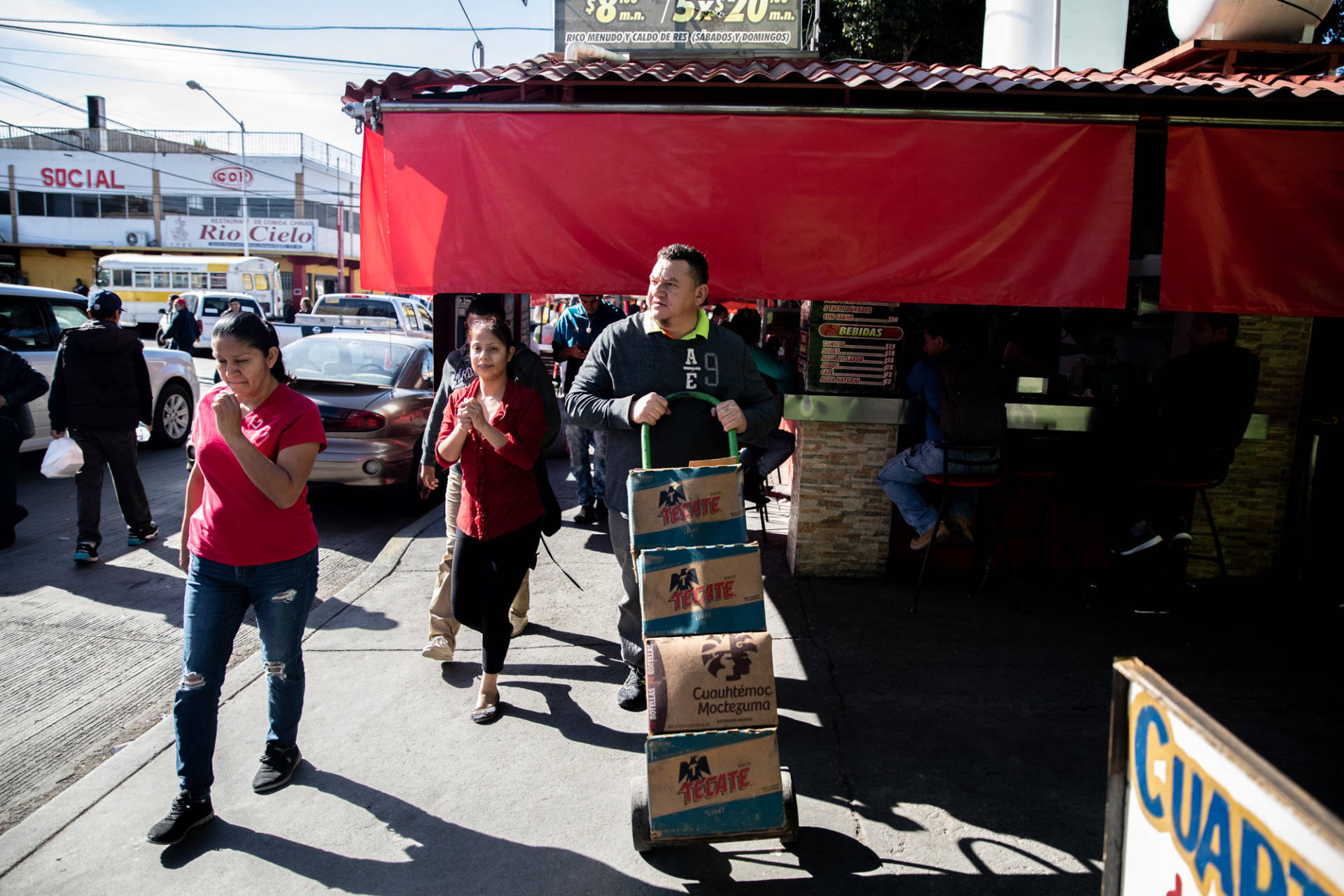When José Aguilar, a Honduran-born resident of Tijuana, Mexico, heard that a caravan of mostly Honduran migrants was headed to the border city, he knew he had to do something.
Seven years ago, Aguilar moved to Tijuana after bouncing between the United States, Mexico and Honduras for two decades. Once settled, he opened a restaurant called Honduras 504. People often call it just 504 or Catracho 504, using the informal demonym Hondurans call each other and their country code.
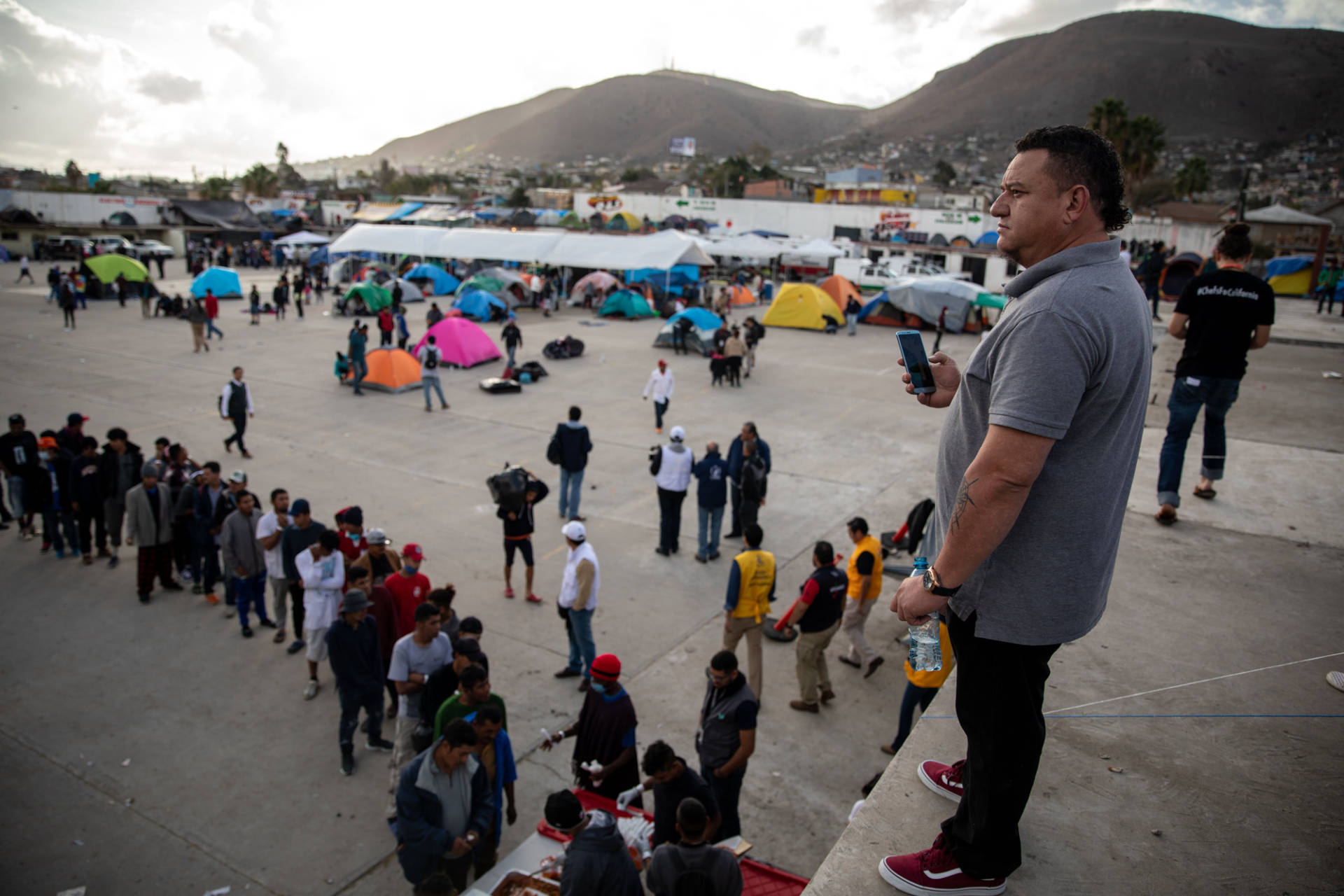
Through the years, the restaurant has become the unofficial heart of the Honduran community in Tijuana. "Local Hondurans come here to eat and drink; it's kind of like a little Honduras. Since there isn't a consulate, newly arrived migrants also come here asking for food and phone calls. Ever since we opened, we've always been there to help," Aguilar says.
He manages the front while his wife, Lilian Mejía, runs the kitchen with her sister, Mitxy. In this cramped space the sisters cook up staples from northern Honduras: stewed chicken with plantains, yuca con chicharrón (fried cassava and cubed pork) and the beloved baleada (a flour tortilla stuffed with red beans, avocado, cream and salty cheese).
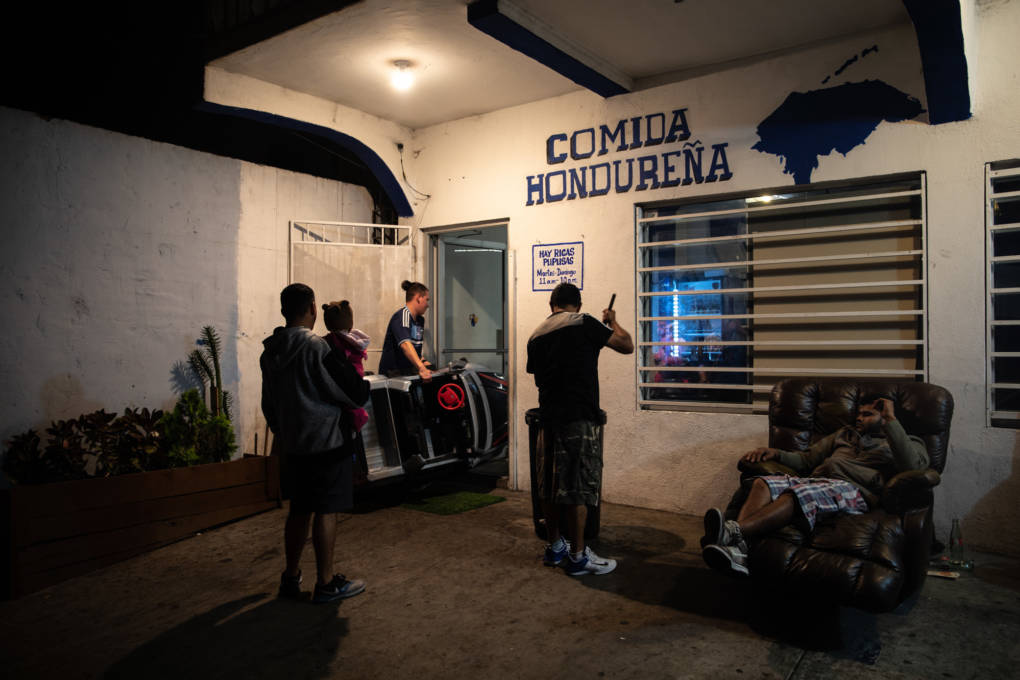
When the caravan arrived in November, the migrants were sent to a shelter inside the Benito Juárez sports complex. The park and baseball diamond were turned into a refugee camp, a short walk from the restaurant.
After thousands of Haitians had come to Tijuana in 2016, Aguilar and Mejía knew from experience that food was the most critical need during a sudden migration crisis.
The couple closed the restaurant and started cooking for the displaced Hondurans. Aguilar sourced the produce, Mejía folded tortilla dough and her sister stewed beans, ultimately assembling some 200 baleadas. Along with José's eldest son, Cristian, they went to the shelter and handed them out. Within minutes the whole supply was gone.
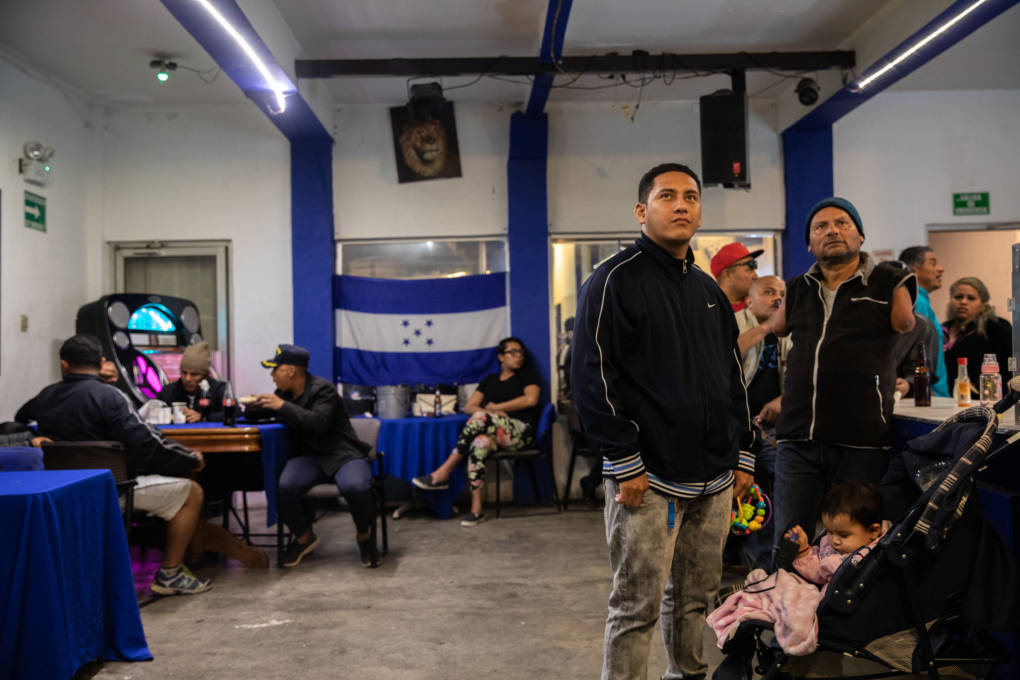
The exhausted migrants smiled ear to ear, many of them eating Honduran cooking for the first time since they fled the country. Once the weary crowd found out it was Hondurans donating food, they erupted in cheers for the family and thanked them for bringing them a taste of home.
The joy that flashed over so many faces got Aguilar and Mejía thinking: They had to do it again, and they had to go bigger. Funded by friends in America wanting to help, the pair set out to feed 1,000 mouths a week. For the family to undertake this monumental task, they hired people from the caravan, upgraded their stove and set aside a whole workday to "cook enough food to feed an army," Aguilar says.
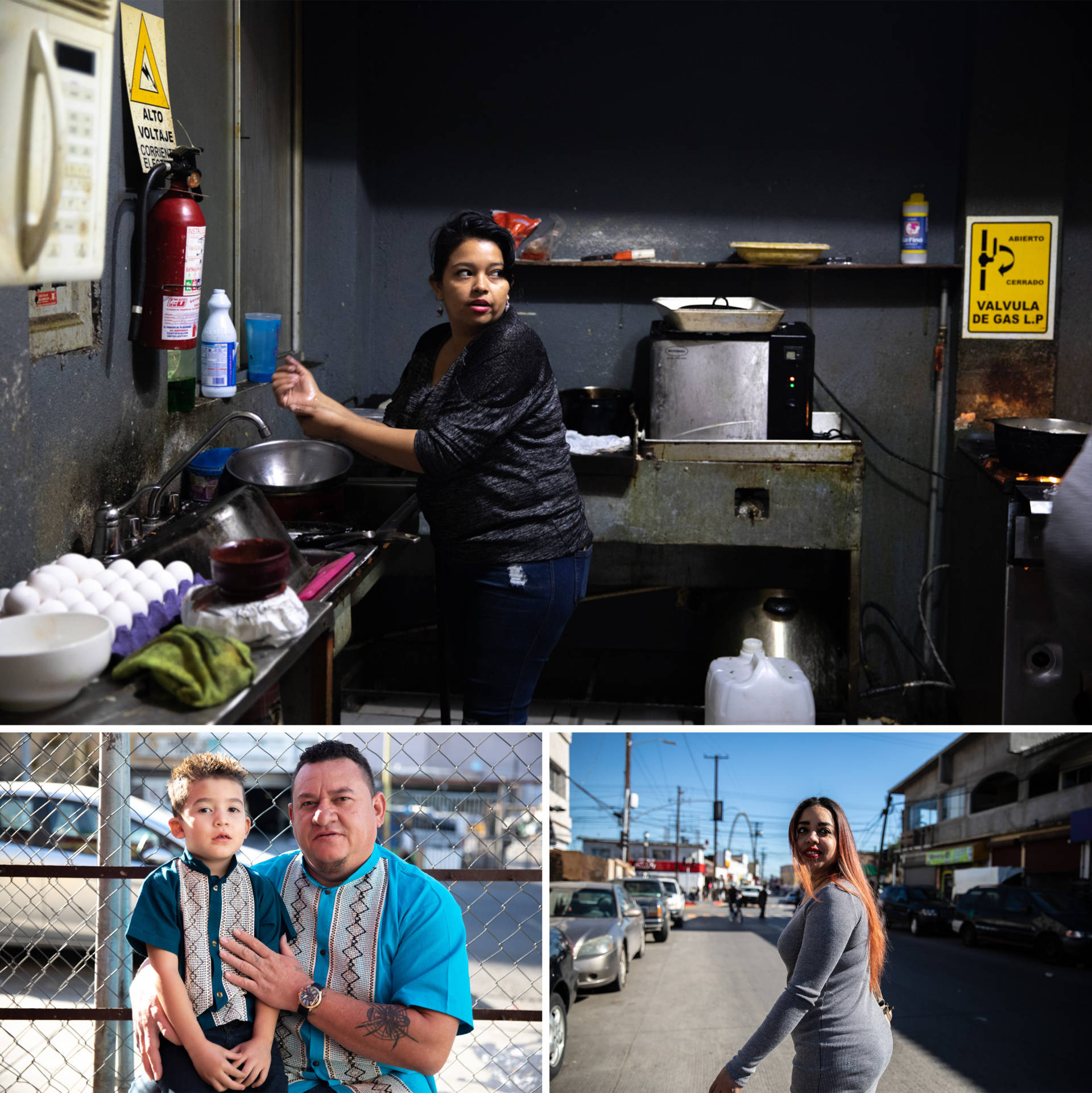
Mejía believes a warm meal, cooked by Honduran hands, brings these folks back a sense of humanity that the long, difficult journey had taken from them. More than 2,700 miles from San Pedro Sula, Honduras, the caravan found family one step away from the U.S. And here, Aguilar sees his responsibility clearly: "They're our brothers and sisters, and as long as they're here it's our duty to look after our own."
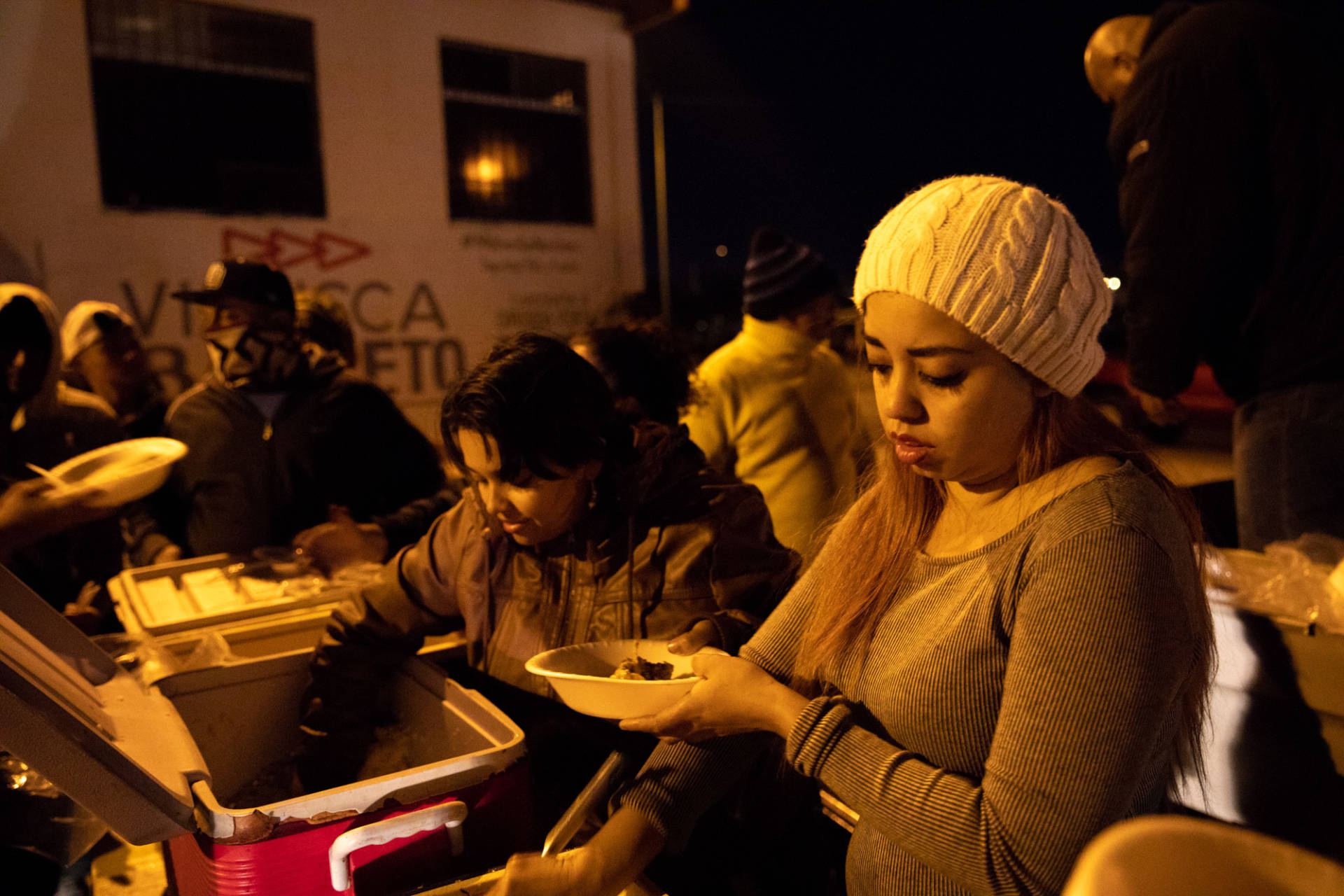
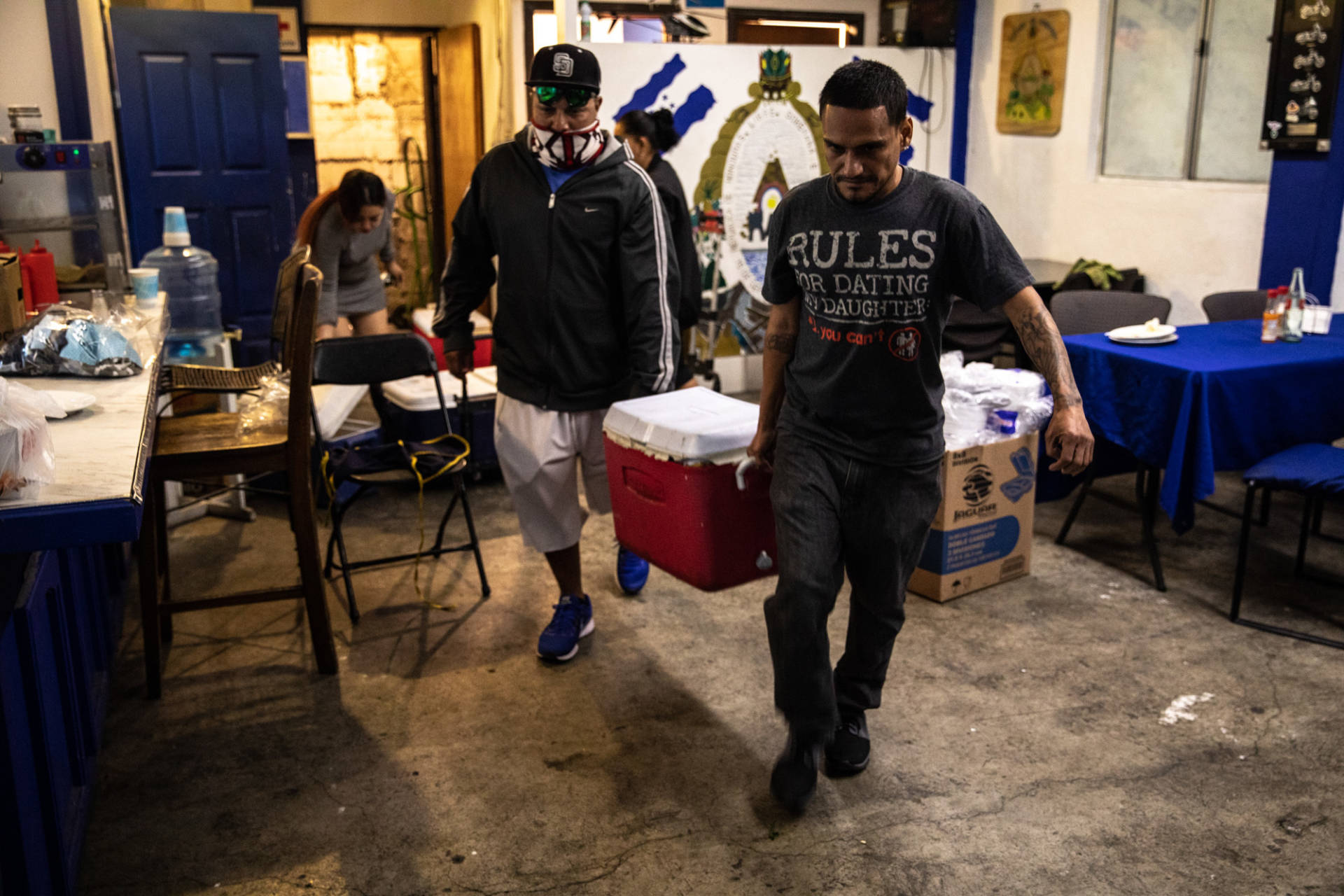
9(MDAxOTAwOTE4MDEyMTkxMDAzNjczZDljZA004))
